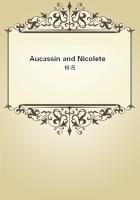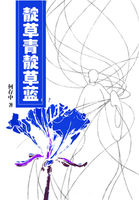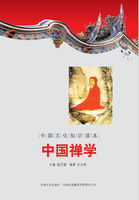The principle of taste may, to begin with, be placed on either of two footings.For taste may be said invariably to judge on empirical grounds of determination and such, therefore, as are only given a posteriori through sense, or else it may be allowed to judge on an a priori ground.The former would be the empiricism of the critique of taste, the latter its rationalism.The first would obliterate the distinction that marks off the object of our delight from the agreeable; the second, supposing the judgement rested upon determinate concepts, would obliterate its distinction from the good.In this way beauty would have its locus standi in the world completely denied, and nothing but the dignity of a separate name, betokening, maybe, a certain blend of both the above-named kinds of delight, would be left in its stead.But we have shown the existence of grounds of delight which are a priori, and which therefore, can consist with the principle of rationalism, and which are yet incapable of being grasped by definite concepts.
As against the above, we may say that the rationalism of the principle of taste may take the form either of the realism of finality or of its idealism.Now, as a judgement of taste is not a cognitive judgement, and as beauty is not a property of the object considered in its own account, the rationalism of the principle of taste can never be placed in the fact that the finality in this judgement is regarded in thought as objective.In other words, the judgement is not directed theoretically, nor, therefore, logically, either (no matter if only in a confused estimate), to the perfection of the object, but only aesthetically to the harmonizing of its representation in the imagination with the essential principles of judgement generally in the subject.For this reason the judgement of taste, and the distinction between its realism and its idealism, can only, even on the principle of rationalism, depend upon its subjective finality interpreted in one or other of two ways.Either such subjective finality is, in the first case, a harmony with our judgement pursued as an actual (intentional) end of nature (or of art), or else, in the second case, it is only a supervening final harmony with the needs of our faculty of judgement in its relation to nature and the forms which nature produces in accordance with particular laws, and one that is independent of an end, spontaneous and contingent.
The beautiful forms displayed in the organic world all plead eloquently on the side of the realism of the aesthetic finality of nature in support of the plausible assumption that beneath the production of the beautiful there must lie a preconceived idea in the producing cause-that is to say an end acting in the interest of our imagination.Flowers, blossoms, even the shapes of plants as a whole, the elegance of animal formations of all kinds, unnecessary for the discharge of any function on their part, but chosen as it were with an eye to our taste; and, beyond all else, the variety and harmony in the array of colours (in the pheasant, in crustacea, in insects, down even to the meanest flowers), so pleasing and charming to the eyes, but which, inasmuch as they touch the bare surf ace, and do not even here in any way all act the structure, of these creatures-a matter which might have a necessary bearing on their internal ends-seem to be planned entirely with a view to outward appearance: all these lend great weight to the mode of explanation which assumes actual ends of nature in favour of our aesthetic judgement.
On the other hand, not alone does reason, with its maxims enjoining upon us in all cases to avoid, as far as possible, any unnecessary multiplication of principles, set itself against this assumption, but we have nature in its free formations displaying on all sides extensive mechanical proclivity to producing forms seemingly made, as it were, for the aesthetic employment of our judgement, without affording the least support to the supposition of a need for anything over and above its mechanism, as mere nature, to enable them to be final for our judgement apart from their being grounded upon any idea.The above expression, "free formations" of nature, is, however, here used to denote such as are originally set up in a fluid at rest where the volatilization or separation of some constituent (sometimes merely of caloric) leaves the residue on solidification to assume a definite shape or structure (figure or texture) which differs with specific differences of the matter, but for the same matter is invariable.Here, however, it is taken for granted that, as the true meaning of a fluid requires, the matter in the fluid is completely dissolved and not a mere admixture of solid particles simply held there in suspension.
The formation, then, takes place by a concursion, i.e., by a sudden solidification- not by a gradual transition from the fluid to the solid state, but, as it were, by a leap.This transition is termed crystallization.Freezing water offers the most familiar instance of a formation of this kind.There the process begins by straight threads of ice forming.These unite at angles of 60", whilst others similarly attach themselves to them at every point until the whole has turned into ice.But while this is going on, the water between the threads of ice does not keep getting gradually more viscous, but remains as thoroughly fluid as it would be at a much higher temperature, although it is perfectly ice-cold.The matter that frees itself that makes its sudden escape at the moment of solidification-is a considerable quantum of caloric.As this was merely required to preserve fluidity, its disappearance leaves the existing ice not a whit colder than the water which but a moment before was there as fluid.















